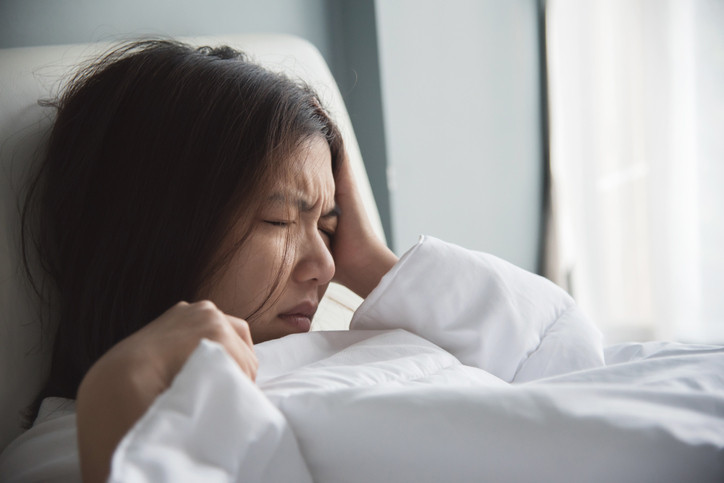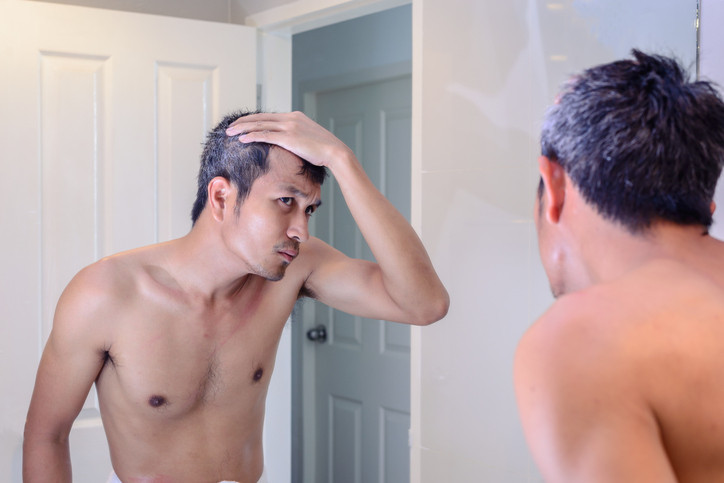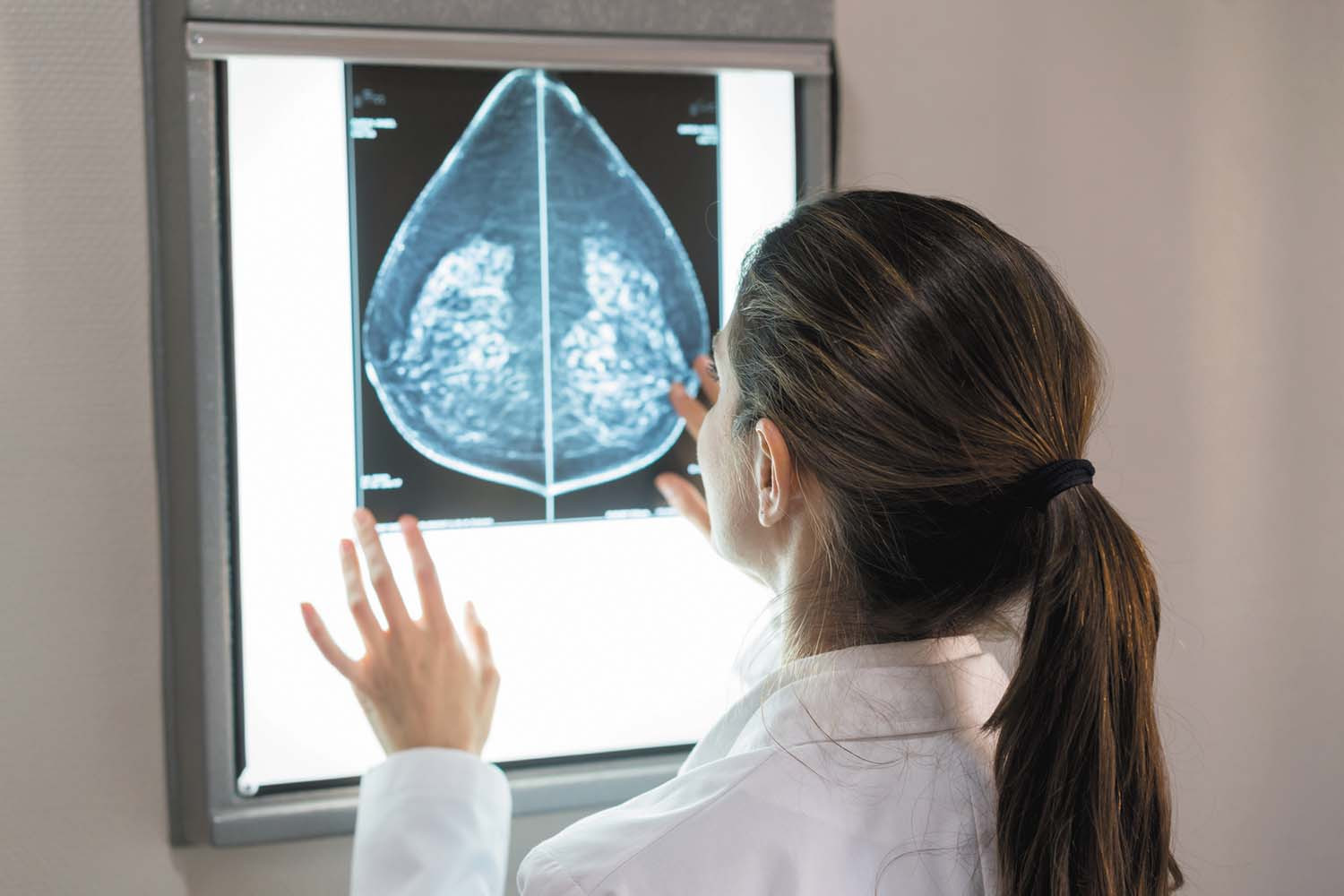
5 timeless habits for better health

What are the symptoms of prostate cancer?

Is your breakfast cereal healthy?

When pain signals an emergency: Symptoms you should never ignore

Does exercise give you energy?

Acupuncture for pain relief: How it works and what to expect

How to avoid jet lag: Tips for staying alert when you travel

Biofeedback therapy: How it works and how it can help relieve pain

Best vitamins and minerals for energy

Should you take probiotics with antibiotics?
Women's Health Archive
Articles
Can alternative treatments help with painful fibroids?
Ask the doctors
Q. I have uterine fibroids and am experiencing some pain and discomfort from them. Are there any alternative treatments that I can use to help manage my symptoms?
A. If you are experiencing anemia, severe pain, or difficulty with urinating that may be due to fibroids, it's important to seek the advice of a doctor. However, there are some pain management options other than medications or surgery that may help relieve symptoms related to fibroids. These strategies haven't been proven to relieve pain from fibroids, but The National Center for Complementary and Integrative Health, in a 2017 review of complementary approaches to chronic pain, found they have some promise in helping other types of chronic pain, specifically lower back pain. These include acupuncture, an alternative medicine treatment that uses small needles applied at specific sites on the body to relieve chronic pain; yoga, a type of low-impact exercise that includes a series of postures and breathing techniques; relaxation techniques, such as deep breathing and mindfulness (a practice that encourages staying focused on the present moment); tai chi, originally practiced as a form of self-defense, which incorporates slow, deliberate movements and deep breathing exercises; and massage performed by a massage therapist.
OK, boomer: You’re not the only one who needs testing for hepatitis C
Recent guidelines for screening for hepatitis C focused on baby boomers because that population had most of the undiagnosed infections, but because new infections are increasing fastest in those 20 to 39, the guidelines have been revised.
Have a headache? The top 7 triggers
There are several common triggers for headaches. Identifying the one that is causing your headache is the first step toward avoiding it or ensuring you can treat it properly.
Harvard Health Ad Watch: What’s being cleansed in a detox cleanse?
The idea of a detox diet or cleanse seems like it might be beneficial, and the advertising is certainly compelling, but these products are not regulated in any way. Evidence of beneficial effects from using them is limited, and there are reports of side effects and complications.
Can telehealth help flatten the curve of COVID-19?
Virtual health care is a convenience in ordinary times, but a valuable tool during a crisis like the one we are experiencing. Also called telehealth, telemedicine, or digital care, it allows medical staff to evaluate patients to determine possible treatment needs and whether they can remain at home.
How to not practice emotional distancing during social distancing
While COVID-19 brings normal life to a temporary halt as we practice social distancing, it helps to double-down on deepening social bonds and practicing kindness and gratitude, not emotional distancing.
Pregnant and worried about COVID-19?
If you are pregnant, naturally you have concerns about COVID-19 and its potential effects on you and your fetus or newborn. Although there is limited data on the new coronavirus and pregnancy, some questions can be answered.
Can stress really make hair (or fur?) turn gray?
Does stress really turn hair gray? Scientists conducted experiments that simulated stress and led to gray hair—in mice, which does not mean it’s true for humans, regardless of what you may have heard in the media.
Menopause and mental health
Shifts in the levels of female hormones can cause temporary mood changes, including symptoms of depression.
The years leading up to menopause and the transition itself can bring changes to your body. But they can also have an effect on your mind, specifically your mental health.
The incidence of depression doubles during this time. Women who have struggled in the past with depression or anxiety might also see a resurgence in symptoms.
Researchers test new technology for screening dense breasts
Research we're watching
Can a new breast screening technology find more cancers in women with dense breast tissue? A study managed by the American College of Radiology (ACR) Center for Research and Innovation will compare contrast-enhanced spectral mammography (CESM) to other screening technologies used for dense breasts (those that contain a higher proportion of active tissue than fat). It's difficult to find cancers in dense breast tissue using traditional mammography because the active tissue shows up as white areas on a mammogram, just like cancers do, making abnormalities harder to see.
CESM is similar in some ways to traditional mammography, but before having the usual x-ray, the woman is injected with a special iodine-based contrast agent that highlights abnormal areas on the image more clearly. Cancerous tumors typically create new blood vessels when they form, and the contrast agent can reveal that increased blood flow, alerting the radiologist to a potential cancer.

5 timeless habits for better health

What are the symptoms of prostate cancer?

Is your breakfast cereal healthy?

When pain signals an emergency: Symptoms you should never ignore

Does exercise give you energy?

Acupuncture for pain relief: How it works and what to expect

How to avoid jet lag: Tips for staying alert when you travel

Biofeedback therapy: How it works and how it can help relieve pain

Best vitamins and minerals for energy

Should you take probiotics with antibiotics?
Free Healthbeat Signup
Get the latest in health news delivered to your inbox!
Sign Up











